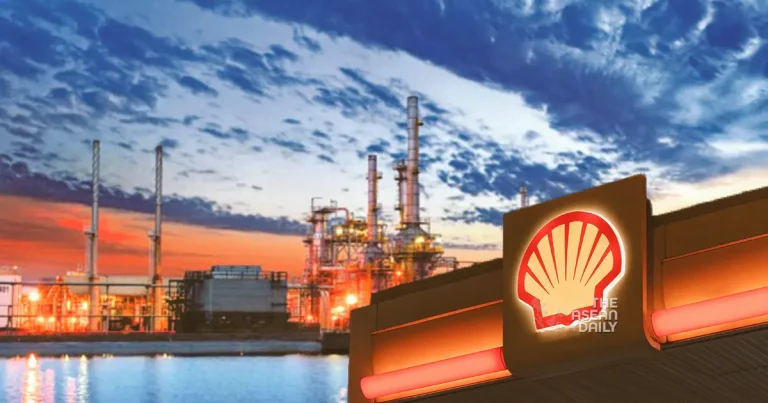9-5-2024 (SINGAPORE) Shell announced on Wednesday its agreement to offload its refinery and petrochemical assets in Singapore, the heart of Asia’s oil trade, to a joint venture between Indonesian chemicals firm Chandra Asri and Swiss miner and commodities trader Glencore.
Reuters previously reported in August that Shell had enlisted Goldman Sachs to explore the potential sale of its refining and petrochemical plants in Singapore as part of a comprehensive global strategic review aimed at transitioning into a lower-carbon operator.
The divestment aligns with Shell CEO Wael Sawan’s strategy to diminish the company’s carbon footprint and concentrate on its most profitable ventures.
In a statement, Shell stated that the transaction would involve the transfer of all its interests in Shell Energy and Chemicals Park Singapore to the joint venture company CAPGC. However, neither party disclosed the deal’s value.
Subject to regulatory clearance, the transaction is anticipated to conclude by the end of 2024, according to Shell.
The purchasers of Shell’s assets on Bukom and Jurong islands stand to establish a presence in one of the world’s leading oil refining and trading hubs. Nevertheless, they will encounter competition from newer refineries in China and elsewhere – the Bukom facility was inaugurated in 1961 – alongside Singapore’s escalating carbon tax, slated to soar in 2024.
CAPGC, primarily owned and operated by the Chandra Asri Group and partially owned by Glencore through their respective subsidiaries, was outlined in a statement by the Indonesian company.
Shell’s assets encompass a refinery capable of processing 237,000 barrels per day (bpd) of oil, a 1-million-metric-ton-per-year (tpy) ethylene plant situated on Bukom island, just south of Singapore, and a mono-ethylene glycol production facility on Jurong island in the city-state’s west.
CAGP and Vitol emerged as the final contenders for the assets after shortlisted Chinese firms, including state-owned China National Offshore Oil Corp (CNOOC), withdrew from consideration.
Acquiring Shell’s Singaporean plants would furnish Chandra Asri with naphtha feedstock for its cracker, enabling the integration of petrochemical production with refining, potentially enhancing efficiency and reducing costs.
Wood Mackenzie’s global head of polyesters, Salmon Lee, commented, “Chandra Asri has been a dominant player in the olefins and downstream sector in Indonesia for decades, and has been seeking to broaden its current portfolio within and beyond Indonesia for many years … this foothold in the petrochemical hub of Southeast Asia will provide it with leverage to expand its ASEAN presence and elevate itself to become a truly regional player.”
Chandra Asri operates Indonesia’s sole naphtha cracker, capable of producing 900,000 tons of ethylene and 490,000 tons of propylene annually, fundamental raw materials further processed into other petrochemicals at the complex.
For Glencore, Shell’s assets offer the global trader a tangible foothold for its Asian trading activities.
Glencore’s lone refining asset is a 100,000 bpd facility in Cape Town, the third-largest refinery in South Africa. It also possesses a lubricants plant in Durban.
A partnership with Glencore enables Chandra Asri to leverage the trading giant’s prowess not only in trading but also on the logistical front, noted Woodmac’s Lee.
Shares of Chandra Asri Pacific surged by as much as 1.9%, outpacing the Indonesian index’s 0.5% decline on Wednesday afternoon. The company’s shares have climbed by 49% this year, attaining a market value of approximately $42 billion, according to LSEG data.
Shell’s London-listed shares inched up by 0.1% and have risen by nearly 13% so far this year. Last week, the company surpassed forecasts with a $7.7 billion first-quarter profit, buoyed by cost-cutting measures and its strategic pivot.




